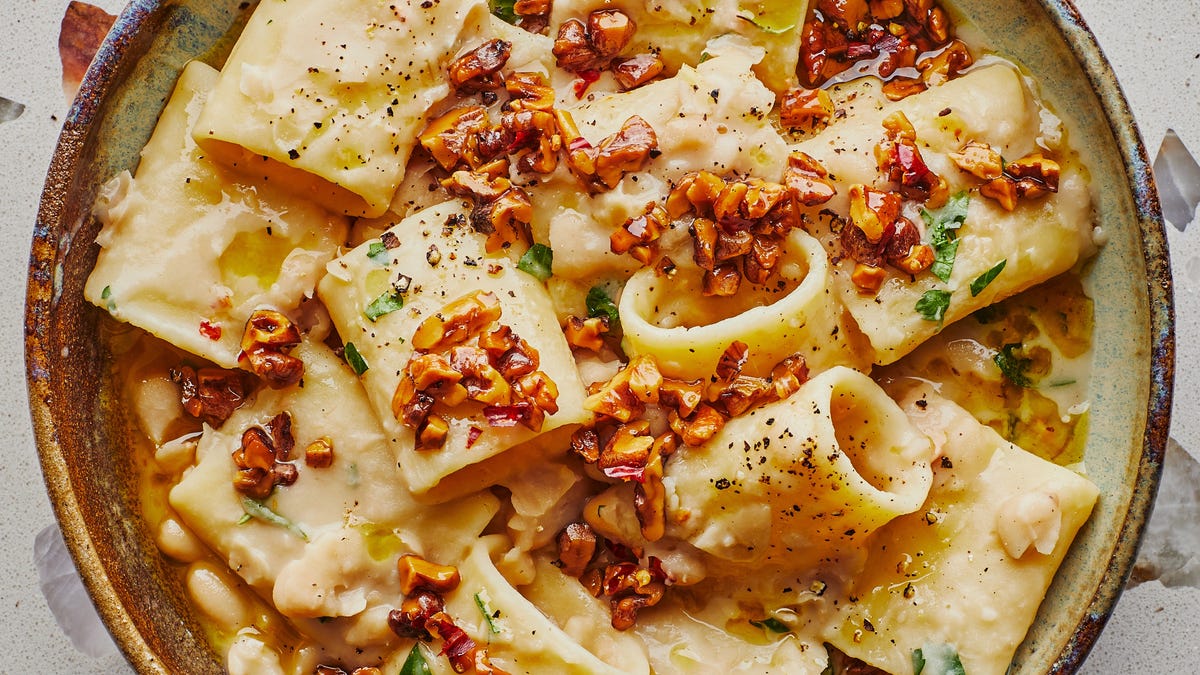 Why You Can Trust CNET
Why You Can Trust CNET Advertiser Disclosure
Forget the bougie image: Plant-based eating is the cheap, tasty way to save us all
Celebs, plant-based burgers and faddishness have shrouded the fact that a true "frugal gourmet" lifestyle is plant-based.

Let's face it, a plant-based diet is often associated with showy elitists willing to spend money to make a point, which is odd since plant-based foods are the least expensive way to eat well.
The cost perception of a plant-based diet has certainly been muddled by pricey, headline-grabbing burgers made from plants. And animal meat is really cheap, absurdly, perversely so, thanks to a long history of industrial advances similar to those that have allowed cars, televisions and computers to proliferate. Combine those two in the average consumer's mind and "plant-based diet" quickly seems like something best left to Beyonce or Bill Clinton.
A recent survey of 1,072 Americans found that a plant-based diet was about $23 a week less expensive than one with meat (and that scales with household size) even though most of us assume the opposite. Much of that misperception might be due to the blurring of plant-based food vs. plant-based processed food.
Whole foods
Highly processed plant-based food like new alternative meats and cheeses, while very impressive, are often more expensive compared to animal products. That's where the savvy diner will discern between processed and whole foods. There's nothing radical here: The standard food pyramid has long been composed primarily of minimally-processed vegetables, fruits and grains, long before Beyond Sausage and Impossible Burgers existed.
The standard food pyramid has always been primarily plant-based and economically so.
Whole food plant-based eating doesn't get any more basic (or cheap) than variations of rice and beans, a long-enjoyed combination that even Consumer Reports says "is one of the healthiest dishes you can eat … combined they make complete protein, supplying all the essential amino acids found in dairy, meat, poultry, and fish." From a meatless San Francisco mission style burrito to a vegan version of Brazilian Feijoada or Jamaican rice and peas, rice and beans does not require compromising your dining.
The affordable and unappetizing plate that comes to mind for many when you say "plant-based meal." This is the furthest thing from what affordable plant-based dining looks like, though.
There are so many tempting pasta and vegetable combinations that you can fill a kitchen shelf with cookbooks devoted to them. And I would hazard a guess that, in most American homes, such pasta dishes have an easier road to acceptance at the dinner table since they print "Italian" more than "plant-based."
All manner of nutritious potatoes, bean stews, grilled tofu and seitan round out an arsenal of ingredients with as much variety as a conventional diet -- but at lower cost and waste. Plant-based cookbooks are no longer aimed at hippies establishing communes, with top-tier titles like Ottolenghi's gorgeous Plenty, Linda McCartney's prescient cookbooks and collections on Bon Appetit leading a long list that yields beautiful dishes, not plates of bland green stuff.
Bon Appetit's recipe with kale, spaghetti, garlic, a little good oil and red chili flakes: It's low-cost perfection.
The hurdle of the "minimally viable meal"
I have a hack theory called the "minimally viable meal," which recognizes that most people feel meat anchors the center of a plate in any proper meal while confirming a subconscious sense of financial well-being -- not just dietary satiation. The age-old saying "putting meat on the table" confers more about household income than diet, though. Having meat on the table is what persuaded the Joad family's patriarch in The Grapes of Wrath to stay in an exploitative work arrangement rather than join fellow migrant workers striking for a livable wage: "Tonight we had meat, not much, but we had it. You think Pa's gonna give up his meat on account of some other fellas?"
The Joad family would rather be exploited than go without meat on their plates, but that was then.
Meat therefore ends up defining the parameters of dining, often leaving plant-based diets as underdogs in a clear-eyed analysis of nutrition vs. tradition. How can the cost and nutritional merits of plant-based eating be considered if the gut reaction is to rule them out? This is the kind of long game plant-based diets have to play.
How to shop
If you're ready to clear your mental deck and economically migrate to a plant-based diet, here are the best tips:
- Rice, beans, grains and pasta are cheap, crave-able and never go bad. (Get over the old idea that carbs make you fat: They don't.)
- Buy vegetables and fruit in season, not off-season oddities that have the cost of shipping from another hemisphere built in.
- Watch the "alt meats". I hate to say this, because I really like them, but if saving money is your main focus, plant-based burgers and sausages aren't quite there yet. Enjoy occasionally.
- Cook for two: Two meals, not two people. Making double of any dish and storing half for later in the week is cheaper than making just a bit more than you need and either throwing out the remainder or letting it go bad in the fridge as it waits for a time when it's enough to do something with.
- Don't conflate "plant-based" with "organic." This happens all the time, but they're different concepts. Unless you specifically want organic food, buy conventional and save money.
- Spend on key seasonings: Buy good oil, quality salt and fresh herbs. These go a long way toward elevating any dish and are worth the money.
If you love extravagant meals there's a growing list of fine restaurants that can accommodate, as well as my elegant plant-based Scrambled Eggs James Bond. But if you can live better for less, why wouldn't you?

